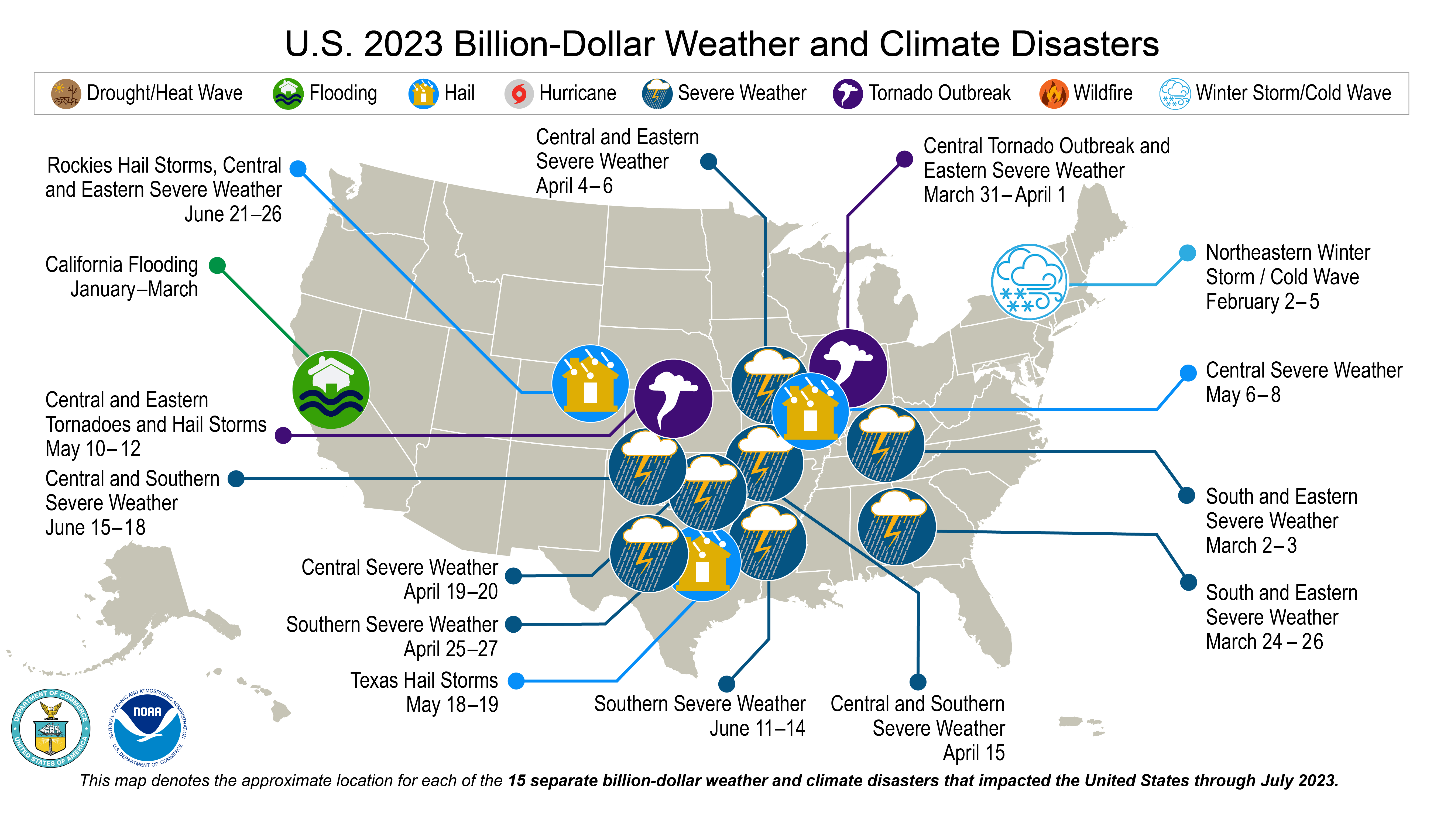Editor’s note: ImpactAlpha contributing editor Imogen Rose-Smith, a longtime senior writer for Institutional Investor, contributes a bi-weekly column on the policies, practices and strategies of the largest asset allocators, including pensions, foundations, and endowments. As Imogen says, she’s “tracking what investors do, not just what they say.”
ImpactAlpha, May 24 – During the 2008 financial crisis, I pinned William Butler Yeats’ well-known poem, “The Second Coming,” on my cubicle wall. In the aftermath of the carnage of World War I, Yeats’ began:
Turning and turning in the widening gyre
The falcon cannot hear the falconer;
Things fall apart; the center cannot hold;
Mere anarchy is loosed upon the world,
Less well-known are the lines:
The best lack all conviction, while the worst
Are full of passionate intensity.
Back then, as the banks collapsed and millions of people were thrown off the housing ladder and into poverty, it felt like the center could not hold.
And here we are once again. The best lack all conviction, while the worst are full of passionate intensity.
Yes, I’m talking about the leaked draft decision that seems to show five conservative justices on the U.S. Supreme Court are poised to overturn Roe v. Wade, the 1973 ruling that recognized a right to abortion. And I’m talking about the tidal wave of anti-abortion legislation coming out of red states that seek to take away any autonomy a woman might have over her own body, sexuality and decision to have a child.
The threatened repeal of Roe reflects a deeper problem with the place of women in the U.S., and the world. What happened to the promises of “third wave” feminism – forged, not coincidentally, in the toxic crucible of Justice Clarence Thomas’s 1991 confirmation hearings – that all women, regardless of race and class, could have careers, families and sexual autonomy? How have women lost ground, not only when it comes not only to control over their own bodies but political power and wealth?
Women are not OK. Not when it comes to the state of women’s rights, and women’s participation in the economy, in the U.S. and elsewhere. Not when women remain under paid for equal work to men, experience restricted access to lucrative carriers, continue to confront discrimination and harassment in the work place, and it literally costs more to be a woman. The idea that women just needed to lean in to their careers, and everything would be just fine, now looks even more like a laughable notion of white cis West Coast privilege than it ever was. There’s no hiring a second nanny to get us out of this mess.
Part of the problem has to do with how we choose to deploy and allocate capital in today’s economy. Institutional investors, from venture capitalists to pension plans, as well as banks and other capital markets participants, bear some responsibility.
Take for example, a tweet the other day from hedge fund manager Bill Ackman. “It’s nice to see Charlie Rose go back to doing what he does well,” Ackman wrote. Wait! He’s back to sexually harrasing women? I immediately thought.
Rose, the veteran newscaster and interviewer, was forced to resign from his roles at CBS and his PBS show was canceled after credible accusations emerged of his sexual harassment of women who worked with or aspired to work with him. To date, 35 women have accused Rose of harassment or abusive behavior.
But, no, Ackman wasn’t talking about the harassment. He was referring to Rose’s skill at interviewing rich old white men, such as 91-year-old Warren Buffett. As part of his comeback, Rose interviewed the Sage of Omaha shortly before Berkshire Hathaway’s 2022 annual meeting.
So much for solidarity.
Emerging managers
We have failed to support women. In asset management, institutional investors for more than two decades have sought to address the persistent skew towards white and male. Initiatives such as emerging manager programs sought to allocate money to female and underrepresented minority venture fund managers and, more recently, entrepreneurs.
Those efforts, while noble and effective for some, have had little impact at the highest ranks of asset management. The vast majority of the largest asset managers are still owned and controlled by wealthy, older, white men or their families. Asset allocators still tend to favor those managers, especially in the public pension space. “Nobody gets fired for hiring Putnam,” the saying went, back when Putnam Investments was considered a top blue chip asset manager.
The particular rules of these emerging manager programs mean they often do little to spur asset managers to promote female portfolio managers. Fund managers rarely get rewarded for hiring or advancing portfolio managers and so largely don’t, or get frustrated when doing so does not result in easy mandates.
If the advancement of women in most areas of asset management has been slow, in venture capital it has been glacial. We have been talking for years about the need for more diversity in VC, and the need for funds to invest more in diverse entrepreneurs. But the numbers don’t lie.
In absolute terms, according to data from Pitchbook and the National Venture Capital Association, all-female founder companies received $7.4 billion of funding in 2021. That is up more than 3X from $2.2 billion 2017, the year that the #MeToo movement took off, and, if we’re being picky, up more than 35X from $0.2 billion in 2006.
In relative terms, however, the amount of money all female founder startups receive remains stubbornly stuck at around 2%. The highest it has reached is 3% of all venture capital funding dollars back in 2013.
The percentage of funding on a dollar basis going to start ups with at least one female founder is generally better, peaking at 18.4% in 2017 and retreated to 17.1% in 2021. That means that over 80% of all venture capital dollars in 2021 still went to all-male founder teams.
That doesn’t seem like much progress.
Board diversity
Board membership is one of the major ways in which investors seek to address diversity in the venture capital pipeline and elsewhere.
In 2018, when I was at the investment office of the University of California, we helped lead an engagement to get publicly traded California-based companies to have women make up at least 30% of their boards. California was particularly important because of the concentration of venture capital-backed businesses in Silicon Valley and around the state.
Our efforts were extremely successful. It wasn’t because we were particularly persuasive. Rather, in 2018 the California state legislature had passed a law mandating publicly traded companies in the state have a minimum number of women on their boards. Businesses wanted to get ahead of the law.
Last month, a L.A. County Superior Court judge struck down a 2020 law requiring even broader board diversity.
At first, I was not too concerned about the ruling. It had been anticipated that these diversity bills would face legal challenges, given the laws around diversity in California, where it is illegal to discriminate on grounds of race, gender, or other factors. Indeed, the group that bought the case against the 2020 law also has a case pending against the earlier women-on-boards bill.
“No matter,” I thought. The mere act of these laws being on the books had forced companies to start diversifying their boardrooms. The Nasdaq is now requiring companies that it lists to have at least one self-identified female board member and one self-identified underrepresented minority or member of the LBGTQ+ community – or provide an explanation for why it does not. Goldman Sachs & Co. is now committed to ensuring that U.S. and European companies it takes public have diverse board representation.
Then I read, “The Cult of We: Adam Newman and the Startup Delusion,” about the improbable rise and dramatic fall of the office space startup WeWork, by Wall Street Journal reporters Eliot Brown and Maureen Farrell.
The authors describe the preposterous lengths rival bankers were willing to go to to win WeWork’s business, particularly its lucrative IPO, and placate WeWork’s increasingly demanding founder and CEO Adam Newman. Faced with a hot IPO prospect, the banks (and the exchanges) cared little about WeWork’s lack of diversity (a female board member was drafted just before the ill-fated IPO), or reports of its bro-friendly toxic corporate culture. Tequila shots all around!
Back to Ackman’s tweet. What pissed me off was that three men, all in positions of power to enable and advance women in the workforce, women in leadership and women on the boards of Fortune 500 companies, seem to have done not all that much about it at all.
It wasn’t until his letter to shareholders in 2020 – his 43rd annual – that Buffett chose to address the issue of women on boards. “During the first 30 or so years of my services, it was rare to find a woman in the room unless she represented a family controlling the enterprise,” Buffett wrote. He noted that on the 100th anniversary of the 19th Amendment, which guaranteed American women the right to vote, “Their attaining similar status in a boardroom remains a work in progress.”
A work in progress that Buffett himself hasn’t seemed particularly interested in progressing. I’m not saying Ackman, Buffett, and Rose haven’t done anything for women. Today four out of Berkshire Hathaway’s 14 board members are women, including Buffett’s daughter, Susan. Berkshire Hathaway has resisted calls from shareholders to publish its diversity statistics.
And yes, I’m aware that Ackman is an impact investor, and that he tried to do good things for the school children of Newark. He is also, along with Peter Thiel, investing in a new money manager with an “anti-woke” agenda.
And I don’t think Rose necessarily needs to remain forever in career purgatory (unlike, say, Matt Lauer). But maybe it’s time for him to ride off into the sunset with what remains of his dignity. It was distasteful to see so many men – and the responses to Ackman’s tweet were full of men lauding Rose– rallying to support one of their own, especially when you consider the career consequences that women so often pay for reporting discrimination and harassment.
Women on top
If you’re a professional woman living in North America, you’re probably doing fine (putting aside the pandemic, war in Ukraine and the generally depressing state of the world). Women now make up the majority of law school graduates. Female enrollment in business school hit a record high of 41% in 2021. Women are making significant grounds in STEM careers.
But drill down and the numbers get more depressing.
According to the U.S. Census Bureau, women in America earn 30% less than men; that number increases with age. Women become less financially secure as they grow older. And women still make up only 27% of STEM jobs and are disproportionately overrepresented in lower paying careers such as service workers.
Black and Hispanic women fare particularly poorly. According to the U.S. Bureau of Labor Statistics, the median weekly wage for Black women in full time employment was $811 in the first quarter of 2022. For Hispanic women it was $732. That compares with $,1,148 for white men and $954 for white women. Women and minorities also suffered the greatest from job losses and lack of income during the pandemic.
A White House report on women’s jobs and the pandemic found that, in 2019, occupational segregation – the lack of access of certain groups to higher paying jobs – cost Black women $39.9 billion and Hispanic women $46.7 billion.
All of this inequality adds up.
The impact investing community likes to talk about women acquiring wealth, and control over investment portfolios. According to management consulting firm McKinsey & Co., women will control $30 trillion by the end of the decade. A recent Barron’s article declared “Women Are the New Face of Wealth and Investing,” and cited the growing number of women founders or co-founders of so-called unicorns, private businesses valued at $1 billion or more.
Barron’s cites Crunchbase data which shows that 83 out of 595 companies that received unicorn valuations in 2021 were founded or co-founded by women, up from 18 just the year before. Except, as we’ve already seen, the vast majority of VC money is still not going to women.
Most women are still far more likely to inherit vast wealth than to make it. Barron’s cites Sara Blakely, who recently sold her majority interest in her women’s shareware company Spandex for $1.2 billion, as an example of female entrepreneur wealth. But far more prevalent at the top of the wealth heap (and far richer) are women like McKenzie Scott, Jeff Besos’s ex-wife, and Melinda Gates, both of whom owe the bulk of their wealth to divorce (Scott was the employee No. 3 at Amazon). Or Betsy DeVos, Trump’s education secretary, who inherited family money.
The top 200 billionaires in Bloomberg’s Billionaire Index includes very few women in the U.S. who can truly be considered ‘self made.’ The wealthiest is Wisconsin native Diane Hendricks, with an estimated net worth of $11.9 billion after co-founding a roofing business with her late husband. At time of writing, Elon Musk and Jeff Bezos, the two richest men in the world, are worth $212 billion and $131 billion, respectively, according to Bloomberg.
We live in a political and economic moment where Elon Musk can wake up and decide to buy the social media company Twitter for $44 billion, some LOL’s, and turd emojis, while people in America are struggling to buy baby formula.
We are witnessing a massive concentration of wealth, and political power, at the top of the political heap. And women are missing out.
After Roe
Someone (on Twitter, naturally) recently pointed to an old article by Musk’s ex wife (the one he married before the insane wealth, before he went crazy pants, and with whom he has five sons) as a useful primer on Musk. Justine Musk, the billionaire’s ex-, talks about the rarified world they came to live in as Musk’s wealth grew, and the role women played in it.
“I realized the kind of social world I’d been living in,” Justine Musk writes describing a post-separation epiphany. “The females who populated it were the young wives and girlfriends of wealthy men, or the personal assistants who catered to them. Women disappeared after some point in their 30s, and any female ambition other than looking beautiful, shopping, and overseeing the domestic realm became an inconvenience.”
In the world of the very very rich, women mostly play the role of wives, girlfriends, mistresses or daughters. If they have power, it is as a proxy for the men whose lives they orbit. Think of Ivanka Trump, aka Kremlin Barbie, carving out a role for herself as her fathers favorite child. Or Donald Trump Jr.’s partner, Kimberly Guilfoyle, screaming into the void of the GOP convention.
True, money, power, and academic credentials are not, and should not be, the only barometer of success. But as the wealth gap in the U.S. widens, it worries me that women have so little of it. And now right wing politicians are coming for our body autonomy.
The anti abortion movement is like the proverbial dog that has caught the mail van. The draft opinion, written by Justice Samuel Alito, “barely mentioned the substantial ways that the loss of access to safe, legal abortion would hamper the ability of women to participate fully in society,” The New Yorker magazine commented in a short, and chilling, article on the economic impacts of banning abortion.
The magazine quotes Caitlin Myers, an economics professor at Middlebury College, who organized 150 economists to file an amicus brief against the abortion ban, citing the negative impactsof pregnancy for women in the labor market, particularly poor women. “Economists as a whole don’t have disagreement about this,” Myers told the magazine.
The amicus brief cited numerous studies of the impact of abortion access on women’s lives, including one that showed that young women who “utilized legal abortion to delay an unplanned start to motherhood by just one year realized an 11% increase in hourly wages later in their careers.” Another found that, for young women who experienced an unintended pregnancy, access to abortion increased the probability they finished college by nearly 20 percentage points, and the probability that they entered a professional occupation by nearly 40 percentage points.” The effects were even greater among Black women.
It’s not just women, or people who are able to become pregnant, who are going to be hurt by Roe’s demise. Forcing women out of the workforce, to give birth to and take care of children, will impact the GDP of states and the overall economy.
Given the toxic political climate, GOP state lawmakers could use legislation to push public pension plans into divesting from companies and businesses that support abortion. These could include healthcare companies and drug manufacturers, particularly as state-based abortion bans extend into restrictions on contraceptives.
The idea that anti-abortion GOP legislatures might target public pensions next is hardly such a stretch. Faith-based entities can already choose to invest in funds that exclude contraceptive manufacturers. And with the battles over fossil-fuel divestment, right-wing lawmakers are learning how to weaponize public plans. I’m sure Peter Thiel and Bill Ackman have the situation under control.
Yeats’ 1919 poem was the literary touchstone for Joan Didion’s “Slouching Toward Bethlehem” (indulge me, I have to put that American Studies graduate degree to use #humblebrag). In the 1960s, it seemed to Didion, as it had to Yeats a half-century earlier, that “the center could not hold.”
Didion, who passed away late last year, writes in her preface that the book’s title is “because for several years now certain lines from the Yeats poem have reverberated in my inner ear as if they were surgically implanted there.” As she explained, “The widening gyre, the falcon which does not hear the falconer, the gaze blank and pitiless as the sun; those have been my points of reference, the only images against which much of what I was seeing and hearing and thinking seemed to make any pattern.”
Faced with confusion and social disruption, Didion felt her points of reference evaporating, her center failing to hold. We are going through something similar today. It is going to take extraordinary effort to win back what has been lost.
The world looks blank and pitiless as the sun.
Imogen Rose-Smith is a contributing editor at ImpactAlpha. A longtime senior writer for Institutional Investor, she was most recently a fellow in the Office of the Chief Investment Officer of the University of California.
Catch up on all of Imogen’s Institutional Impact columns.











